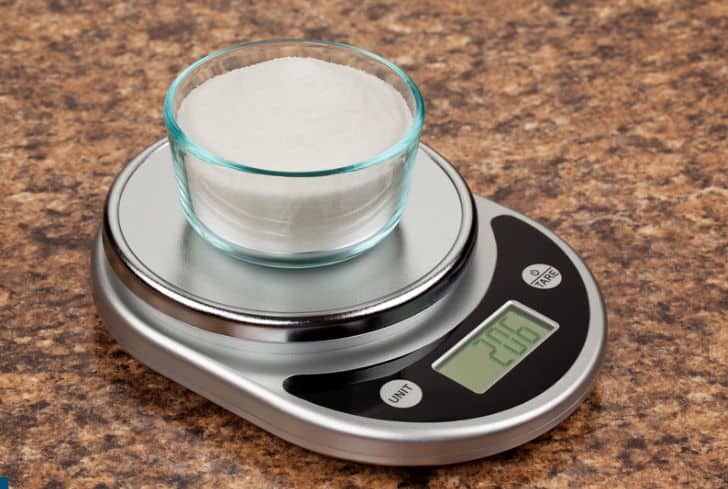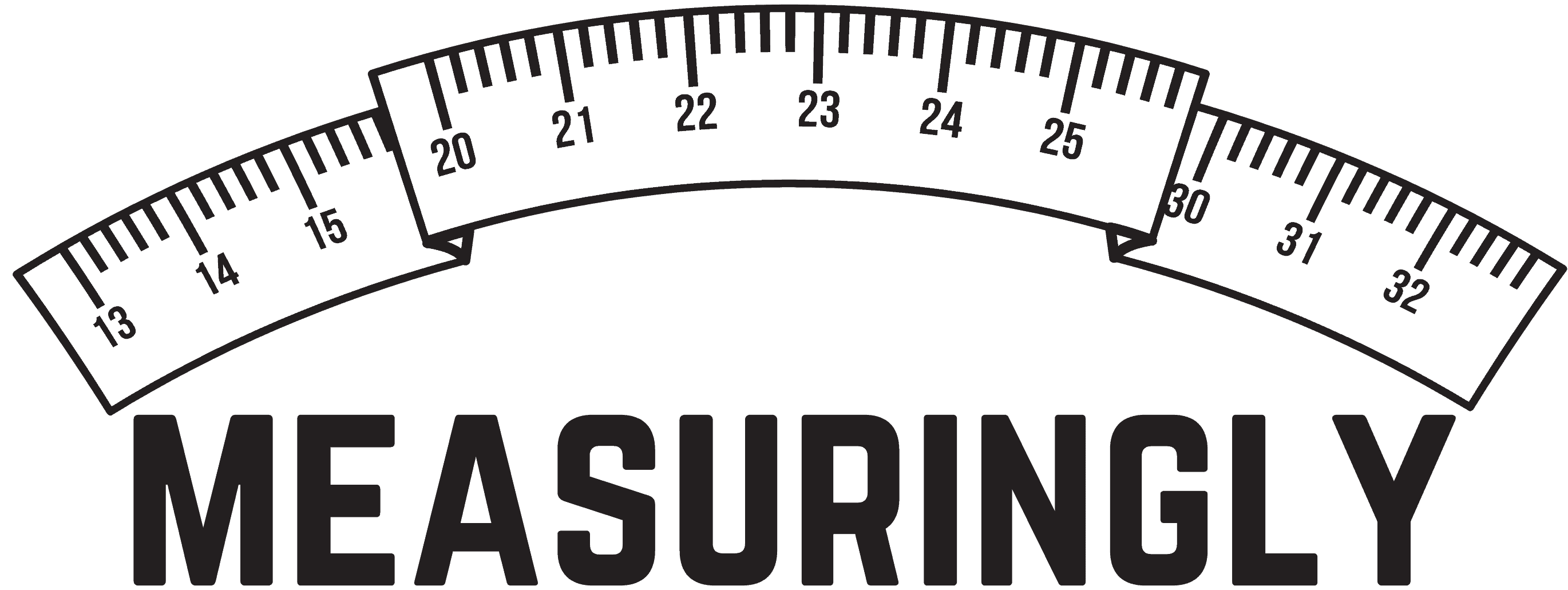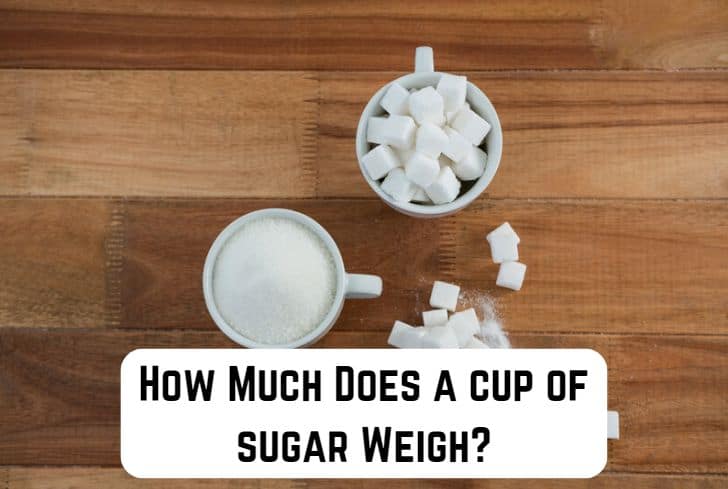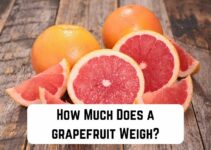When it comes to baking, measuring ingredients accurately is critical for the success of the final product. One ingredient that often sparks confusion is sugar. You might wonder, how much does a cup of sugar weigh? Fortunately, we have the answer for you.
A cup of sugar typically weighs 200 grams. This measurement is essential in keeping the right balance between sweetness and texture in your baked goods. Understanding how to convert between cups and grams can help you make a recipe more efficient and avoid potential pitfalls during the baking process.
It’s important to know the weight of a cup of sugar as it can vary depending on the type. A cup of sugar typically weighs 200 grams.
Measuringly.com
Read: Weight of Boxing Gloves: Guide For Beginners
Understanding Cup Measurements
Cup Sizes
When measuring ingredients in the kitchen, it’s essential to understand cup measurements. Cup sizes can vary depending on the country or even the specific measuring cup you use. In the United States, a standard cup size equals 8 fluid ounces or 240 milliliters.
However, the metric system in other countries is more commonly used, so their cups might hold 250 milliliters or another measurement. Knowing the exact size of the cup you’re using will help guarantee accurate recipe measurements.
Metric and Imperial Conversions
Being familiar with both metric and imperial conversions is crucial, especially if you’re using a recipe from a different country or working with unfamiliar units of measurement. For instance, 1 US cup of granulated sugar weighs approximately 220 grams or 7.8 ounces.
Here’s a handy reference for common conversions between cups, grams, and ounces:
| Cup | Grams | Ounces |
|---|---|---|
| 1/4 | 55 g | 1.9 oz |
| 1/2 | 110 g | 3.9 oz |
| 1 | 220 g | 7.8 oz |
| 2 | 440 g | 15.5 oz |
Keep in mind that these conversions may vary slightly depending on the specific type of sugar or ingredient you’re measuring.
As you work through recipes, double-check measurements and conversions to ensure a successful outcome. Familiarizing yourself with cup sizes, metric, and imperial conversions will help avoid confusion or inaccuracies while cooking or baking. Remember, practice makes perfect, and the more you work with these various measurements, the more confident you’ll become in your kitchen skills.

Weight of a Cup of Sugar
When measuring sugar for your recipes, it’s important to know the weight of a cup of sugar as it can vary depending on the type. In this section, we’ll discuss the weights of different types of sugar – granulated sugar, powdered sugar, and brown sugar.
Granulated Sugar
Granulated sugar is the most common type of sugar used in recipes. One cup of granulated sugar weighs approximately 220 grams. When measuring by volume, use a dry measuring cup and be sure to level it off for accuracy. Here are some common granulated sugar measurements and their weights:
- 1/2 cup: 110 grams
- 1/4 cup: 55 grams
- 1 tablespoon: 12.5 grams
- 1 teaspoon: 4.17 grams
Powdered Sugar
Also known as confectioners’ sugar or icing sugar, powdered sugar is finely ground and often used for icings and glazes. Since it is lighter and has more air incorporated into it, one cup of powdered sugar weighs less than a cup of granulated sugar.
However, due to the lack of specific information on the exact weight of a cup of powdered sugar, it’s generally best to refer to your recipe for guidance.
When measuring powdered sugar, sift it first to avoid lumps and ensure an accurate measurement.
Brown Sugar
Brown sugar, either light or dark, contains molasses, which gives it a softer texture than granulated sugar. This means that when measuring brown sugar, you need to press it down into the measuring cup to get an accurate measurement. One cup of packed brown sugar weighs approximately 200 grams. Common brown sugar measurements and their weights include:
- 1/2 cup: 100 grams
- 1/4 cup: 50 grams
- 1 tablespoon: 12.5 grams
- 1 teaspoon: 4.17 grams
By keeping these weights in mind, you’ll be able to measure sugar accurately for your recipes and ensure the best possible results in your baking.
Read: How Much Does a Gallon of Sand Weigh?
Factors Affecting Sugar Weight
Packed vs. Unpacked
When measuring sugar by volume, the weight can vary depending on whether it’s tightly packed or loosely scooped. A tightly packed cup of sugar weighs more than a loosely scooped cup.
For example, a tightly packed 3/4 cup of confectioners’ sugar can weigh more than 4 ounces, while a loosely scooped cup can weigh around 200 grams or 7 ounces. So, when measuring sugar for your recipes, remember that its weight can slightly change based on how it’s packed into the measuring cup.
Humidity
Humidity can also affect the weight of sugar. In a humid environment, sugar can absorb moisture from the air, causing it to clump or become sticky. This absorbed moisture increases the weight of the sugar.
To ensure accurate sugar measurements in your recipes, consider these tips:
- Always use a dry measuring cup for sugar
- Store sugar in an airtight container to maintain its quality and texture
- If your sugar clumps due to humidity, break it up before measuring
By being mindful of these factors, you can ensure consistency in your recipes and maintain the desirable textures of your baked goods. Remember, when it comes to measuring sugar, using a kitchen scale might save time and give you the best results, as it provides more accurate weight measurements. Practice makes perfect!
Tips for Accurate Measurement
Measuring sugar accurately is essential for successful baking. This section will discuss using a kitchen scale and the proper measuring technique to ensure the best results.
Using a Kitchen Scale
- Invest in a digital kitchen scale for precise measurements.
- Weigh your sugar in grams to ensure consistent results in your recipes.
- One cup of granulated sugar weighs approximately 198 grams.
Proper Measuring Technique
- Stir: Stir your sugar first to remove any clumps.
- Spoon: Spoon the sugar into a dry measuring cup gently. Avoid packing it down or tapping the cup.
- Level: Use a straight edge, like the back of a knife, to level off the sugar for an accurate measurement.
By following these tips, you can ensure that your baked goods turn out perfectly every time!







